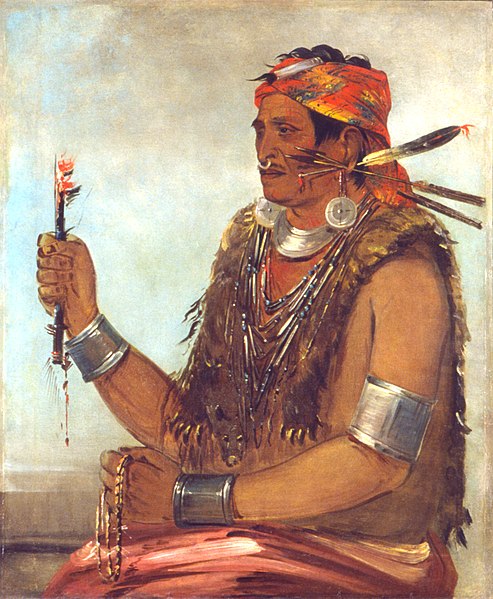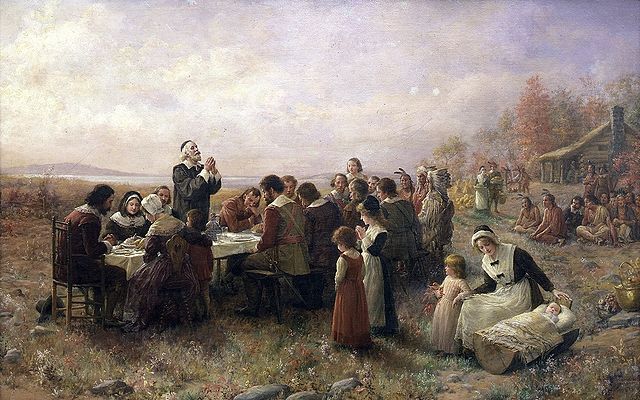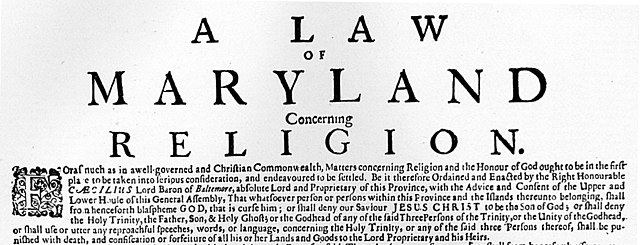History of religion in the United States
Religion in the United States began with the religions and spiritual practices of Native Americans. Later, religion also played a role in the founding of some colonies, as many colonists, such as the Puritans, came to escape religious persecution. Historians debate how much influence religion, specifically Christianity and more specifically Protestantism, had on the American Revolution. Many of the Founding Fathers were active in a local Protestant church; some of them had deist sentiments, such as Thomas Jefferson, Benjamin Franklin, and George Washington. Some researchers and authors have referred to the United States as a "Protestant nation" or "founded on Protestant principles," specifically emphasizing its Calvinist heritage. Others stress the secular character of the American Revolution and note the secular character of the nation's founding documents.
Tenskwatawa, by George Catlin.
The First Thanksgiving at Plymouth by Jennie Augusta Brownscombe (1914)
Roger Williams was expelled from the Massachusetts Bay Colony in 1636 for advocating religious liberty.
The Maryland Toleration Act, passed in 1649.
In United States law, the Establishment Clause of the First Amendment to the United States Constitution, together with that Amendment's Free Exercise Clause, form the constitutional right of freedom of religion. The relevant constitutional text is:Congress shall make no law respecting an establishment of religion...
Earl Warren was Chief Justice when Engel v. Vitale was decided.





